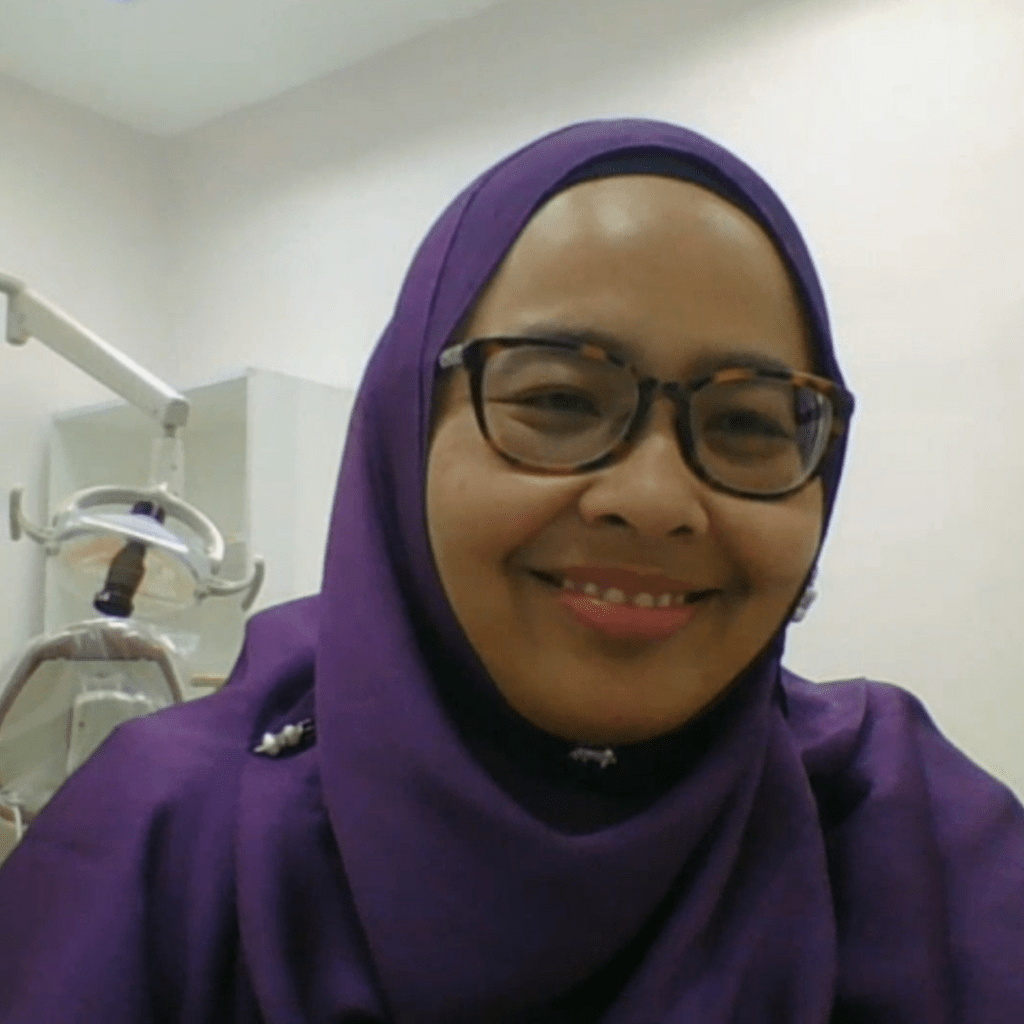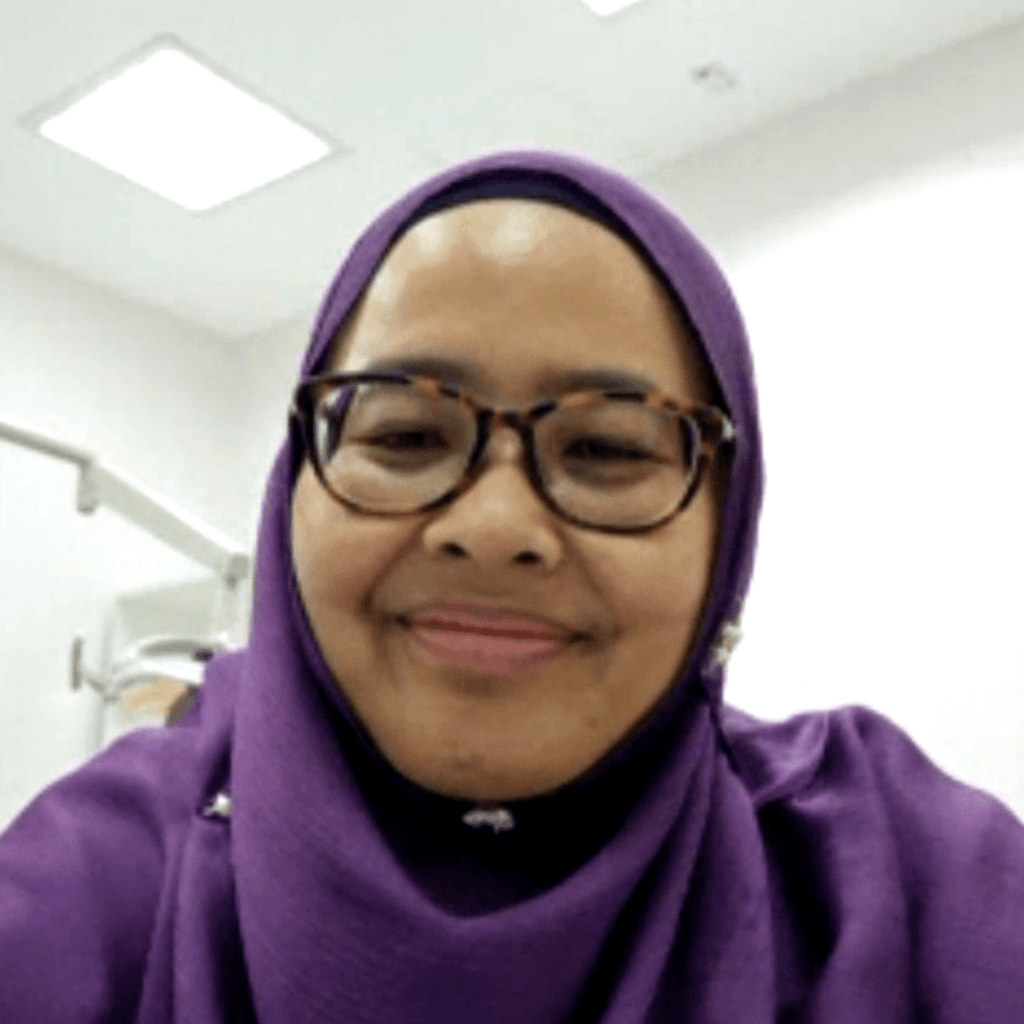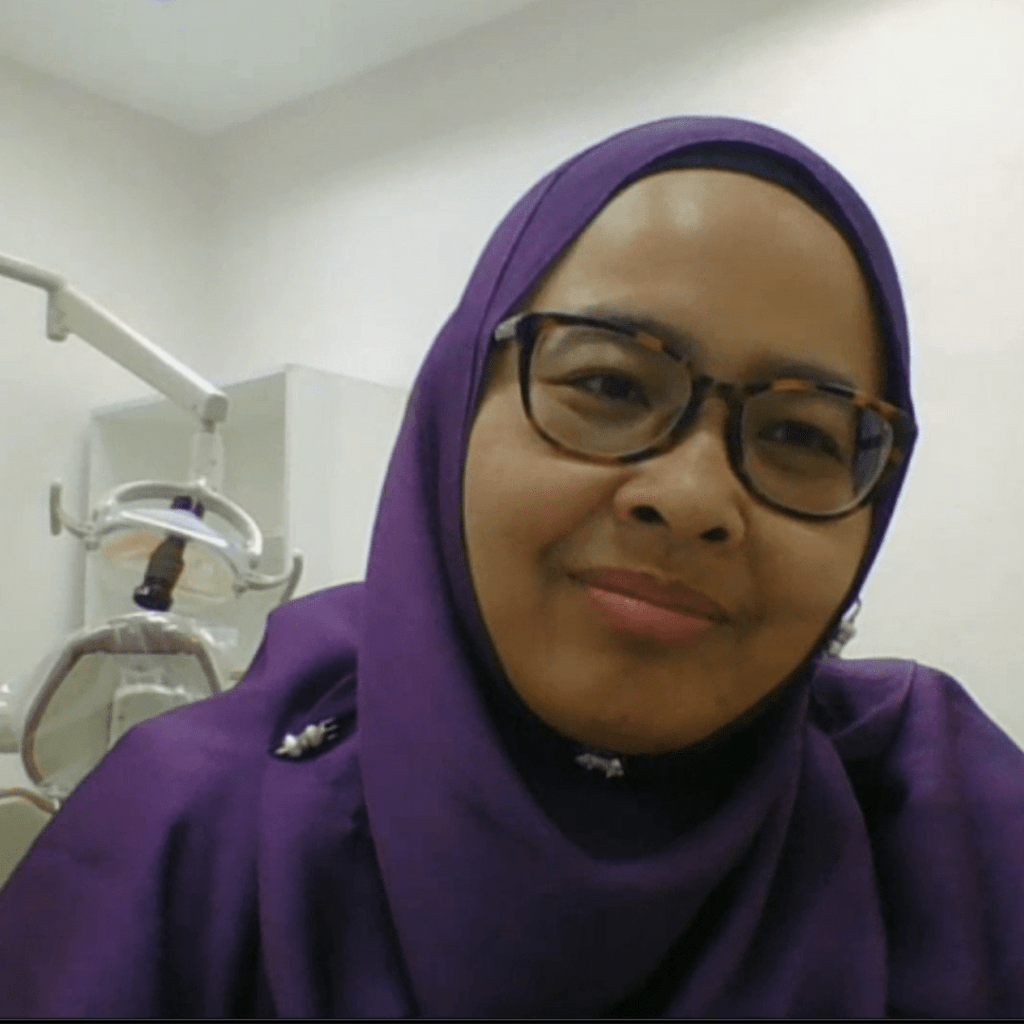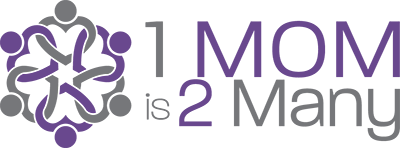Intan’s Recovery

As part of our #1Momis2Many global campaign, our Executive Director, Kimber MacGibbon, had the pleasure of speaking with Intan, an HG and Wernicke’s Encephalopathy survivor working as an oral surgeon in Malaysia. Below is a transcript of our interview that has been slightly modified as appropriate.
HER: Tell us a little bit about your experience with hyperemesis gravidarum.
Intan: I had three HG pregnancies, one in London, where I was receiving my Master’s, and two in Malaysia. My twin sister also had six HG pregnancies: three in Toykyo and three in Malaysia. Thank God, all of our babies are HG survivors.
My first pregnancy was in 2007, and I lost seven kilograms. In 2009, during my second pregnancy, I lost nine kilograms. And during all my pregnancies, I had HG at five weeks gestation and it lasted up until my delivery. During my previous pregnancy in 2012, I lost fourteen kilograms and I was diagnosed with Wernicke’s Encephalopathy.
At this time, the doctors were not well aware of hyperemesis gravidarum. My first pregnancy was in London, where I was doing my masters, and the treatment did not differ between London and Malaysia. In my third pregnancy, the doctors again treated me symptomatically. When I was admitted to the hospital, I could smell the pungent aroma of urine and the feces of my next door neighbor. I was then transferred to a private hospital, where I was able to get my own room.

I was the one talking to my medical providers and saying, “I think I need TPN,” because I couldn’t eat at all. Everything, even clear fluids, made me vomit. I was then admitted to another hospital for a period of 30 days. And I felt that the majority of medical care providers in Malaysia did not detect the severity of HG, and they always treat it symptomatically. When I was discharged from the hospital, my husband could see that I was lethargic and still ill. So, he decided to take me to a public hospital, and I was attended/seen at the Emergency Department’s (ED) Yellow Zone where I couldn’t even recall my husband when asked.
HER: What was it like navigating HG pregnancies while still studying and going to work?
It was hard. I also think there might be a bias that pregnancy automatically means vomiting, and vomiting continuously was thought to be more of a mental distress. Having worked at two public hospitals during my journey with HG, they know that I am not being weak, but yes, I did vomit a lot. Even after just one sip of water!
In my third pregnancy, it was quite bad because I was away from work for approximately seven months until delivery, five months in the hospital. I was bed-bound for those seven months, and I remember that my best friend was a pail layered with multiple plastic bags that kept me from running to the toilet. I was even wearing diapers as each time I vomited, I peed. Embarrassing as it sounds, I’m grateful to have experienced this throughout my third HG journey.
When I returned back to work after my confinement period, my physician stated that I was neurologically competent, but I still felt imbalanced, and my muscle tone was minimal. My fine motor skills were affected, which made it impossible to perform any surgical work. Months after the pregnancy, my hands were still shaky and had tremors especially my left hand. I could barely hold a pen to sign a document at the bank and that was extremely frustrating. I met with my Oral Health Director, and they asked me if I would like to lecture instead of working at the hospital; as they knew I was not performing surgically. I responded, “I will still work, as long as you can put me somewhere that would be beneficial to the patients.” As the tale unfolds, I was fortunate to be offered a position as a clinical lecturer at a public University.
HER: What was your support network like during this time?
My family was my greatest supporter: my twin sister, my mom, my mother-in-law, my dad, my father-in-law along with my family and close friends. However, my utmost support would be my husband, Ashraf, who transferred from Dublin to London during my first HG pregnancy. He would consult with his medical friends, and he managed the IV drip for me at home during my second pregnancy. And in my third pregnancy, he booted me off to physiotherapy straight after my confinement period. Albeit, being terrified of my weak state.
HER: Did you seek any treatment after your HG delivery?
I started physiotherapy around forty days after my third pregnancy. But it was quite a major journey; it took many attempts to just sit up without assistance. It irked me in my heart and it felt like I was trying to climb Mount Everest. About three months after that, I was still using a walking stick and was back at work. I was able to supervise junior dentists and able to provide consultation to my patients. I was also doing occupational therapy during that time in order to enhance my fine motor skills and build up my endurance. Over a span of three to four years, I have been able to perform dental extractions and perform surgeries without tremors in my hands.
HER: As a surgeon, do you ever feel disadvantaged by your condition?

Indeed, a dental surgeon is an artist and woe beyond her when the function of her hands is impaired. I am grateful that my colleagues, both at the public hospital and at the University were understanding. Primarily, I was assigned to do non-clinical duties after my third pregnancy. And started routine dental work when my condition improved. Routine appointments with the Rehab team pushed me further to be able to stand where I am now, and to be able to offer my surgical duties as necessary.
HER: Is there anything the HER Foundation can do to be of support or help to you or other HG moms?
It should not only be the patients who are aware of HG. To combat any other HG moms succumbing to Wernicke’s Encephalopathy, the Foundation should be adamant in raising HG awareness especially to global healthcare professionals in order to be able to create CPG (Clinical Practice Guidelines) regarding NVP (Nausea and Vomit during Pregnancy) and HG based on local cultural norms.


